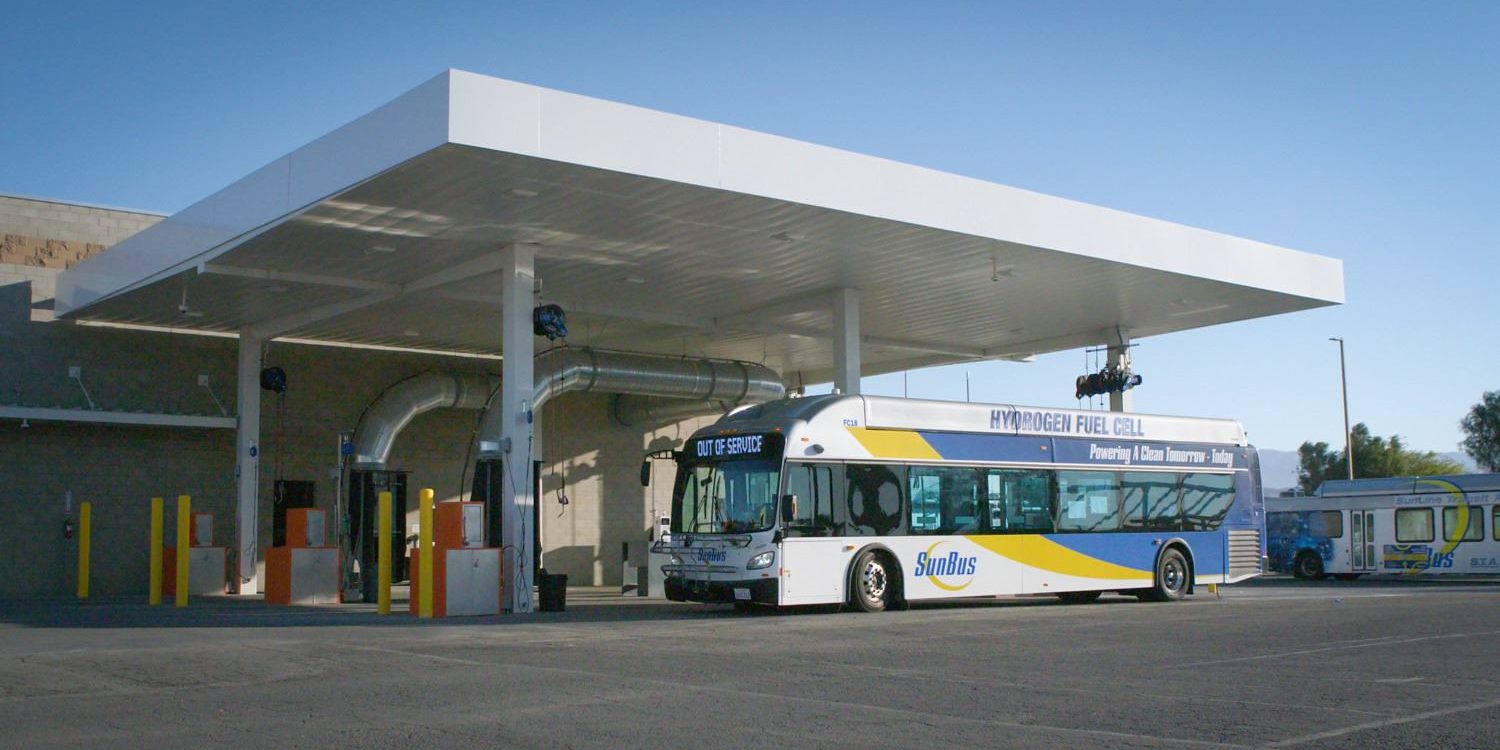Southern California Gas Co. (SoCalGas) announced the official groundbreaking on construction of a first-of-its-kind advanced hydrogen generation system at SunLine Transit Agency in Thousand Palms, California. The project, called H2 SilverSTARS, will produce hydrogen from renewable natural gas and help fuel SunLine’s fleet of 17 hydrogen fuel cell buses. At scale, this demonstration project has the potential to provide clean hydrogen at any location adjacent to a natural gas pipeline, which will help reduce greenhouse gas (GHG) emissions and accelerate California’s climate and clean air goals.
The demonstration will test STARS’ technology, which was developed at the Pacific Northwest National Lab. The technology uses a combustion free process, so that it produces fewer GHG emissions compared to a conventional steam methane reforming process. Since the compact system is based on low-cost 12×1-inch, 3D-printed reactor disks and heat exchangers, it can be easily installed at fueling stations to help meet the demand while advancing climate and clean air goals. After its installation, the first STARS system will produce up to 80 kilograms of clean hydrogen a day, that’s enough to fuel three of SunLine’s zero-emission buses per day.
“We’ve been anticipating for this day to arrive and I’m excited construction has begun. Californians will need access to hydrogen and this demonstration project will provide insight during this energy transition,” said Glenn Miller City of Indio Councilmember and SunLine Chair. “Once widely adopted, this project will help meet our state’s climate goals.”
“SunLine has been pioneering hydrogen technologies for nearly three decades and partnering with SoCalGas on this project continues the momentum necessary to make hydrogen fueling accessible to the public,” said Lauren Skiver, CEO/General Manager of SunLine Transit Agency. “Producing clean hydrogen is the future of fuel, and this system will play a pivotal role in reducing greenhouse gas emissions.”
“For several years now, the high cost of transporting hydrogen has been the big problem with rolling out fuel cell vehicles in California,” said Robert Wegeng, President of STARS Technology Corporation. “This demonstration elegantly solves the problem with a compact, mass-produced hydrogen generator that can be placed on the gas grid in close proximity to filling stations and other places where cheap hydrogen is useful. Better yet, the hydrogen can meet the new Federal ‘Clean Hydrogen Standard’ for regional hydrogen hubs since it can be produced from renewable natural gas.”
“This is the kind of demonstration project we love to see in California and we’re excited construction has started. SoCalGas will use the knowledge gained from this project to help accelerate the adoption of clean hydrogen,” said Neil Navin, SoCalGas vice president of clean energy innovations. “Adopting clean technologies and working with SunLine and STARS will help SoCalGas and California reach our shared air quality and climate goals much faster.”
Earlier this year, SoCalGas announced a proposal to develop Angeles Link, a dedicated green hydrogen energy infrastructure system that could deliver clean, reliable energy to the Los Angeles basin to provide a path to decarbonize hard-to electrify sectors such as electric generation, industries that require clean fuels and cannot currently be electrified, and heavy-duty transportation.
SunLine Transit Agency has been at the forefront of providing environmentally conscious public transportation since 1993, when the Agency pursued an aggressive strategy for incorporating clean technologies into its operations.
SunLine is on track to be fully transitioned to zero emissions by 2035 – five years ahead of the deadline set in the state’s ICT Regulation (2040). In addition to SunLine’s PEM Hydrogen Electrolyzer – the largest clean hydrogen-producing station in the country for transportation – its Liquid Hydrogen Station project has been funded by the California Energy Commission (CEC) and will expand the Agency’s hydrogen fueling capacity for the existing fueling infrastructure.
Source: SoCalGas
Photo: Elizabeth Rodil







